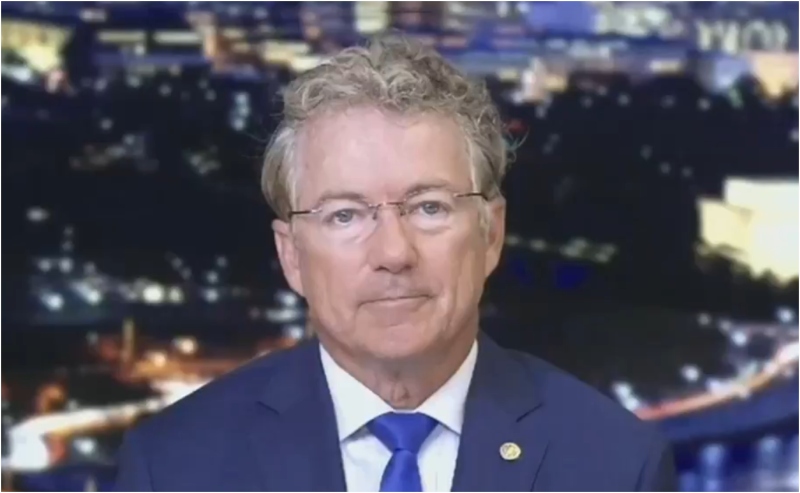Sen. Rand Paul (R-Ky.) is again drawing attention by questioning President Trump’s latest use of military force — namely, the attack on and the destruction of a Venezuelan drug boat in the Caribbean this week.
In an interview with Newsmax’s Rob Schmitt, Paul admitted nobody would “shed a tear” for dead drug dealers but warned against the dangerous precedent.
“I guess it’s hard to have any sympathy for drug dealers trying to import product into our country. But at the same time, you might ask the question: where does it end? Are we the world’s policeman — the international policemen? Are we going to be blowing people up off the coast all around the world trying to interdict?” Paul said.
“Really, I’m not sure we have the finances to be the world’s policemen. So, on the face of it, it sounds good. Nobody’s going to have any lost love for a bunch of drugs going down in the ocean and killing some gang members. At the same time, really, where does it end? And is it really the constitutional duty of our government to be policing international drug trade everywhere around the world?” he added.
PLAY:
Rand Paul raises concerns over Trump's strike on Venezuelan drug boats: “It's hard to have sympathy for drug dealers, but where does it end? Are we the world's policemen? I'm not sure we have the finances to be the world's policemen.” pic.twitter.com/ULnAnzSz2r
— TheBlaze (@theblaze) September 4, 2025
The Trump administration, as well as the Biden administration, have said fentanyl is responsible for at least 100,000 American deaths annually over the past several years.
“If it’s coming into our country, I think interdicting drugs coming into our country, absolutely — there is a U.S. interest in that. But that’s a real question. I don’t know the details of where the drugs were going,” Paul said.
“They may well have been coming to our country, but this was done off the coast of another country. So it is a little bit different. It is unique,” he added.
“It hadn’t really been done in decades, where we have an action against another group inside their territorial waters.”



